What are some good side gigs for musicians?
Category: Business
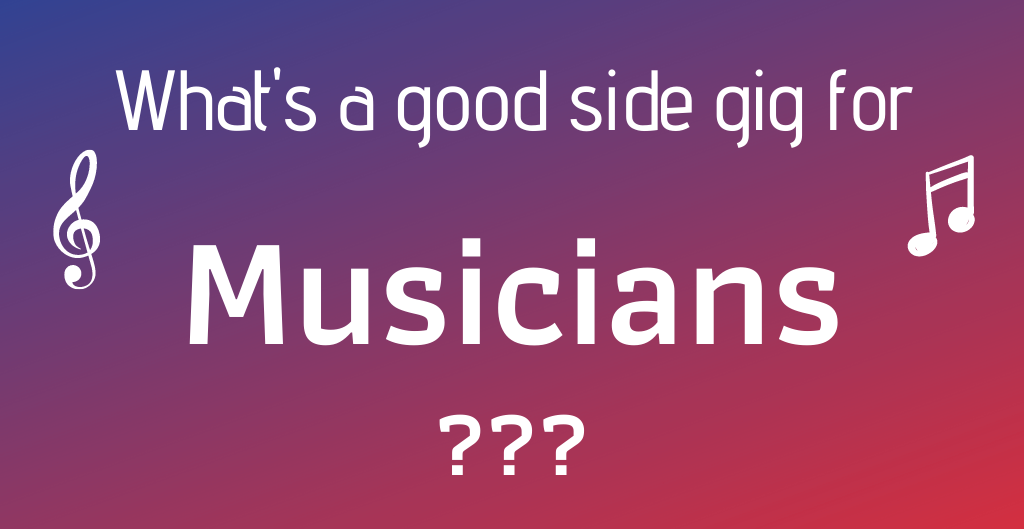
There some phrases I’ve been hearing lately that have me thinking about side gigs for musicians.
I often hear the phrase “side hustle” and another one is “gig economy.”
It’s very interesting to me how, over time, from generation to generation, a word or phrase can take on a completely different connotation. I was a 60s and 70s kid, having been born on the tail end of the baby boom. So the word hustle, by itself, has quite a range of meaning.
At first it meant simply to do something quickly and with energy. I like that. Baseball’s Pete Rose was known as “Charlie Hustle.” He was one of the greatest players of all time, yet it’s hard to forget the negative aspects.
There was a little magazine back in the day started by a guy named Larry Flynt. (If you don’t know it, you’ll have to look it up. Or, if you’re easily shocked, don’t.) I could be wrong but it’s possible that moniker grew out of the meaning having to do with prostitution.
The current meaning of side hustle is work or a business you do in addition to your full time job.
These days it’s becoming more and more common for people to make a living in something called the “gig economy” stitching together a living out of freelance or shorter term jobs with different companies. This is in stark contrast to the old days when one got out of school and worked for a company for several decades until retirement. Those days are pretty much over.
For musicians, the gig economy has been happening for a long time. The word gig has been in the lexicon of the working musician since the 1920s, most likely coined by jazz musicians as short for “engagement.” It usually refers to one night jobs, though a regular gig could be ongoing.
As a freelance singer, I’m well acquainted with those two phrases. I also learned these two beautiful words: residual income. This is a concept that is becoming more well known, as it should. In the music world it was often shortened to residuals.
Residuals were something much desired and rarely achieved. In simple terms, residual income is money you make for work that you’ve done in the past. By contrast, a typical job would be something where you trade your time (or a skill you have) for money.
Here’s the main idea I want to focus on: The average working musician doesn’t often land the type of work that can provide a healthy residual income. Mostly, they go from gig to gig. Sadly, over the past 40 years, I don’t think that the average pay for a typical club gig has increased even 10%. And now, with the pandemic, many of the live music gigs have just gone away. It’s a crying shame.
There’s a silver lining to this cloud that I plan to cover in another blog post.
There are so many fields where creative people earn a living so they can do what they love. So what might aspiring musicians do to support themselves if the gigs have dried up? Or, while they’re working toward becoming a full-time musician?
I’ve thought about this a lot because I’ve had a lot of jobs in my time.
In my late teens one of my many ‘day gigs’ was driving a school bus. The early morning following a late gig on a bus full of elementary school kids was not fun. Think of me as a female Otto from The Simpsons. Does that notion scare you? Well, it should.
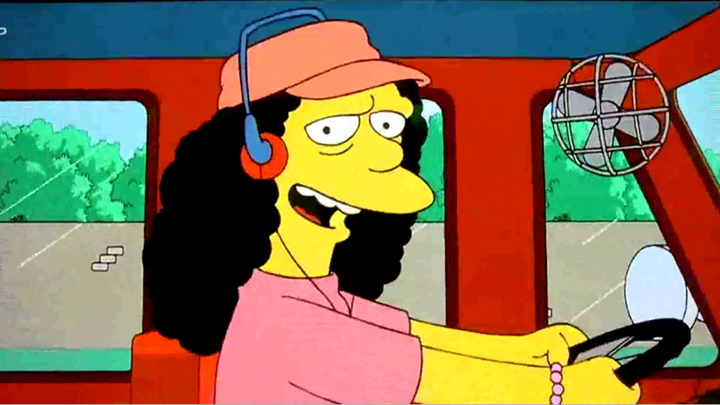
I worked at resturants and while I was in school and I did some office temp work straight out of high school. When looking for income options ‘back in the day’, I remember hearing of this thing called data entry. It sounded about as thrilling as watching paint dry.
The construction business is where many musicians I knew generated cash flow. It may not be for everyone since it is manual labor and may require an affinity for using tools.
Some musicians use their knowledge of sound engineering to work in the entertainment business from another angle. I have friends who became successful going this route and wound up touring with big name acts like Neil Diamond and U2. Some became studio sound engineers and started their own companies. Many of my musician friends worked at the local music store or taught instrument lessons to earn income. Depending on the area where you live, busking could even be an option.
Being self-taught, teaching wasn’t a realistic option for me. In addition to driving a bus, I had jobs as a server (back when it was still called being a waitress), a file clerk, a customer service representative, a telephone installation technician, and a limousine driver, to name just a few.
All these jobs and professions have merit that goes beyond making money. Living in the work-a-day world can have value for the practical and people skills you can build. The experiences can help spark your creativity, too.
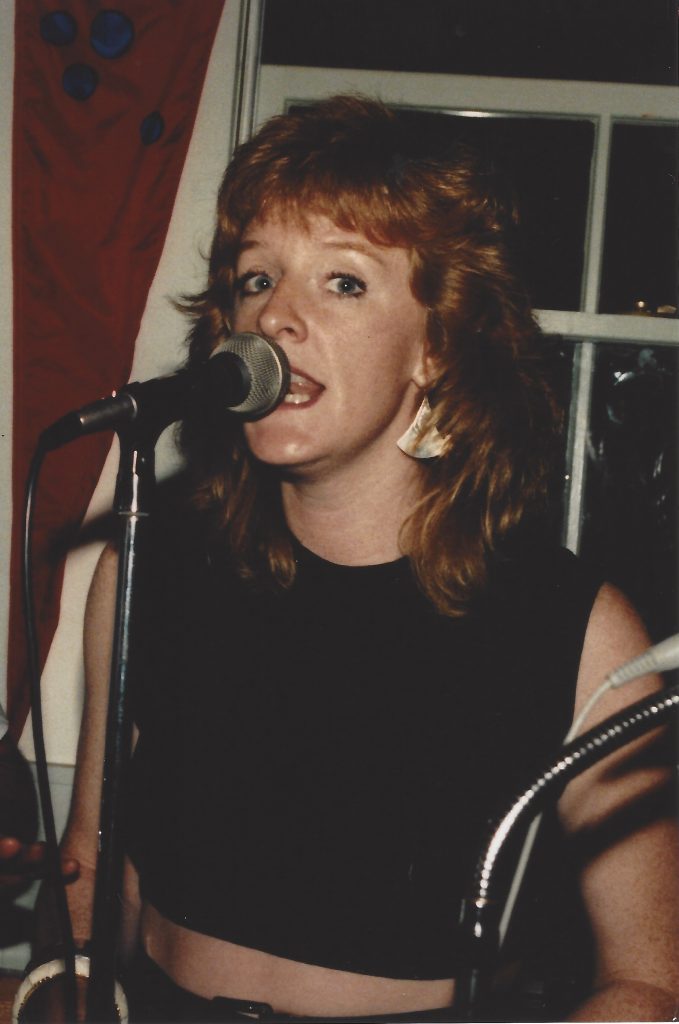
When I finally focused my energy on getting paid for music, I used my singing and studio skills to sing song demos and help create backing tracks for karaoke systems. I played “club dates” which is what we called weddings and corporate events. It was fun (in a way) and it helped me to keep up my chops. It wasn’t especially satisfying in terms of creativity though.
When I was still in my 20s, a fellow musician introduced to this thing called Network Marketing. (It wasn’t called that back then. I”ll let you in on a little secret; it began with an A and ended with an mway.)
My response? A resounding aw, HELL no! Part of the reason for that was how it was shown to me. I felt like I’d been blindsided. He said ‘Hey, come to dinner at my apartment. Meet my family!’ The part he didn’t say: After dinner I’ll give a flip-chart presentation for dessert. Then, when you say no thank you, I’ll get all pissed off and never talk to you again. Yuck.
It’s unfortunate that I had that experience. The other thing that I didn’t like was that I thought I had to sell. I didn’t want to sell. For a very long time I was closed off to what I now know to be a really great side gig that can be a great option for musicians and other creatives.

Here’s some of what I’ve since learned about Network Marketing that make it a great alternative to the usual part-time gigs that musicians, actors and other creatives often find themselves doing, such as restaurant serving, bartending, cab (now Uber or Lyft) driving, Instacart shopping and other similar income generating pursuits.
- You can earn residual income
- You control your own schedule
- You can choose with whom you work
- You can give yourself a raise
- Much of the work can be done online
- Generally, the work is not limited by geography
- With the internet and smart phones, you can work almost anywhere
- You don’t need any special degree or certification
Don’t think for one minute that just because you don’t need a college degree to succeed in network marketing, that it means you don’t need to learn things. There is much to be learned and there are challenges. For the most part, the skills you need to develop will also help you in your everyday life in ways that may surprise you. It could even help you to learn to be a better business person for the pursuit of your music career.
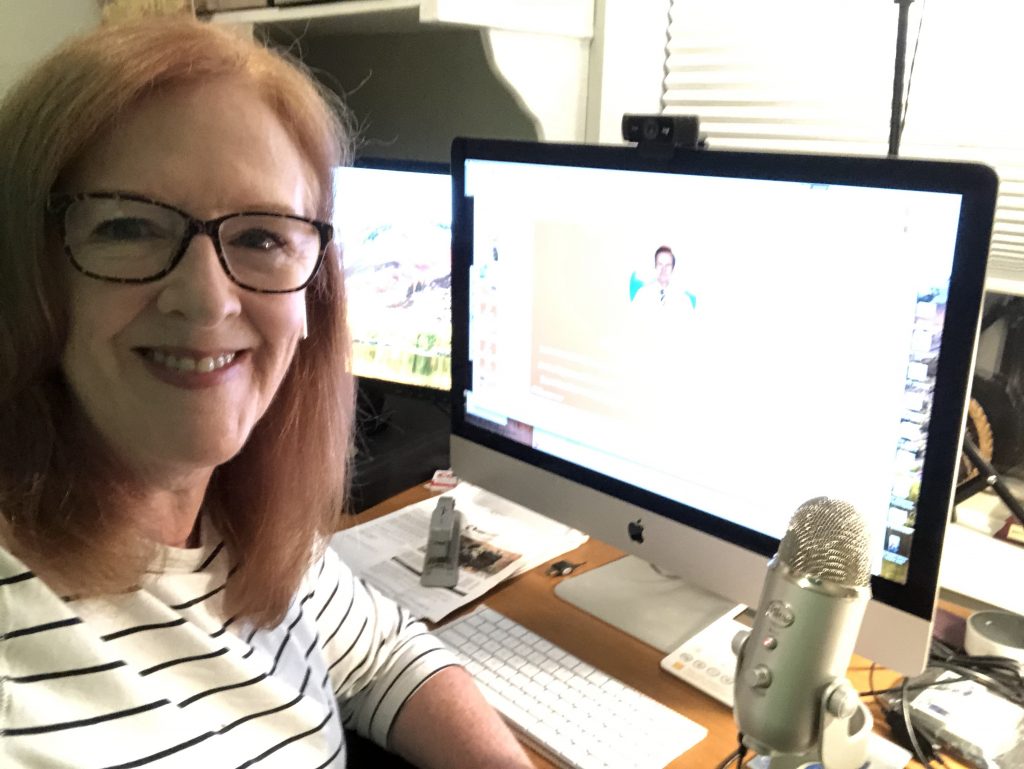
I’ve chosen the Wellness field to develop my online network marketing business.
Ok, maybe it chose me. I am an online wellness guide. I connect people with educational resources and products to improve their health. And I teach people how to do what I do.
One of the many side benefits is feeling better and getting healthier from using high quality products and implementing lifestyle changes. With this business model, you can offer better health and extra income to other people, too. By helping others, you help yourself. Win-win.
For me, as a singer, I constantly battled illnesses and allergies while pursuing my music career. I’m so much healthier now. And though I’m hesitant to look back with shoulda-coulda-woulda thoughts, I can’t help but wonder how much further I might have been able to go had I been healthier earlier in my career.
C’est la vie. I feel good now!
I have a couple of questions for you.
What are you currently doing to earn income? And are you open to looking at the possibility that an online network marketing business could help you support yourself while you pursue your dream of a music career?
If so, I’d love to help you discover if this business is the right choice for you. If you choose to join me, great. If not, that’s ok, too. It doesn’t cost anything but a small investment of time to find out. Do your research and your due diligence. Have an open mind and get the facts to help you decide.
Reach out to me and let’s discover the answer together.
Cheers!
~ Maura
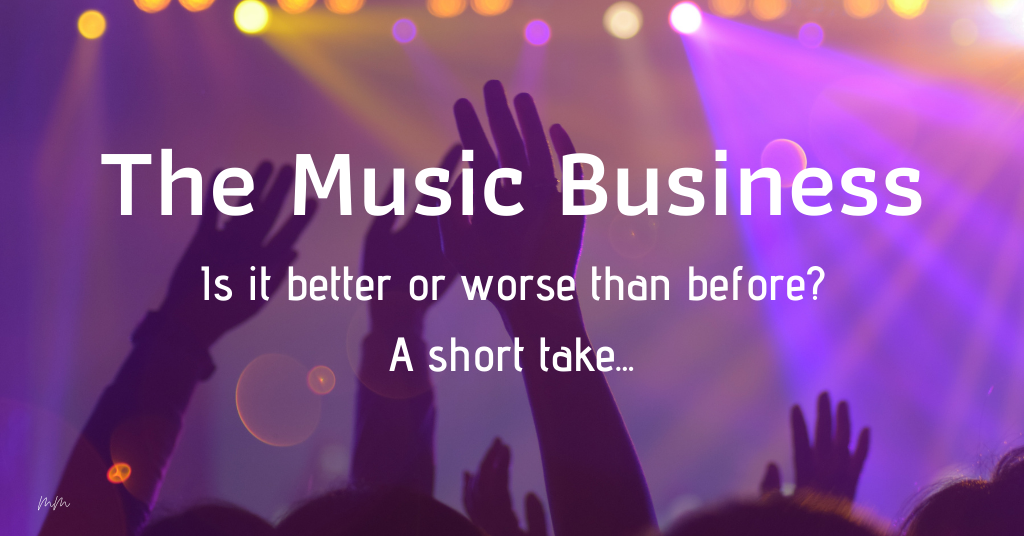

Facebook Comments